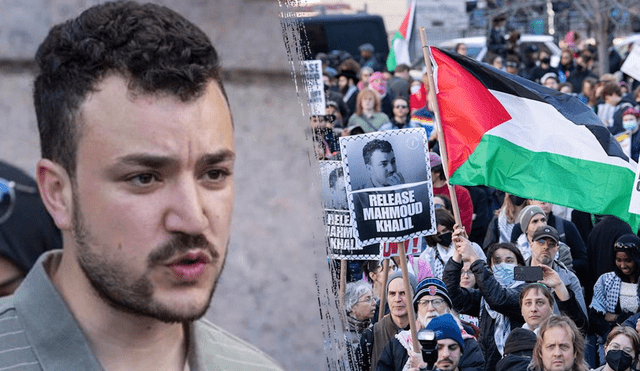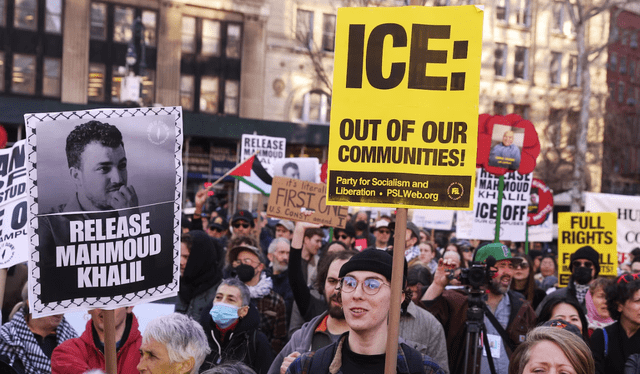ICE intervention: Columbia student Mahmoud Khalil was detained without a warrant
Khalil's lawyers and the Justice Department are arguing about whether a warrant was needed for ICE agents to arrest him.

Mahmoud Khalil, a pro-Palestinian activist and graduate student at Columbia University, was arrested on March 8 by Immigration and Customs Enforcement (ICE) agents without a warrant. According to recently released court documents, Khalil, who was born in Syria and has legal permanent resident status, was detained after attending a religious event during Ramadan.
The Department of Homeland Security (DHS) argued that there were “exigent circumstances” that justified the immediate arrest, considering Khalil a potential flight risk. However, video footage from the moment of the arrest shows that the student voluntarily cooperated with authorities, contradicting the official account. Khalil is currently being held in an immigration center in Louisiana.

ALSO SEE: Immigration affairs at the Vatican: US vice president meets with Vatican officials to discuss ideas
Legal defense alleges rights violations and falsifications in ICE report
Khalil's legal team filed a motion to dismiss the charges, arguing that no evidence has been provided to support his alleged lack of cooperation or flight risk. The attorneys also question the legality of his detention, pointing out that officers' entry into Khalil's apartment building should have been carried out with a warrant. According to statements by attorney Marc Van Der Hout, ICE later admitted that no such warrant existed, despite initially stating otherwise in their report.
The defense has provided evidence to the court, including testimony from Columbia University professors and colleagues, refuting allegations of antisemitism. They also deny that Khalil withheld information about his work history or his involvement in university political campaigns, such as the divestment from apartheid campaign.

Thousands protest against ICE and for Khalil's release. Photo: The Washington Post
Grounds for deportation and international attention in the case
The Trump administration has pushed for Khalil's deportation based on two legal arguments: one related to potential negative effects on US foreign policy, and another accusing him of omitting information in his application for permanent residence. The most recent alleges that he failed to declare his employment at the Syrian Office at the British Embassy in Beirut, as well as his ties to certain organizations.
The case has generated international attention, especially given the political context surrounding it. Khalil has requested asylum, citing personal safety concerns if deported. At the same time, his legal team is seeking his release on bail while legal proceedings against him continue in immigration and federal courts.












